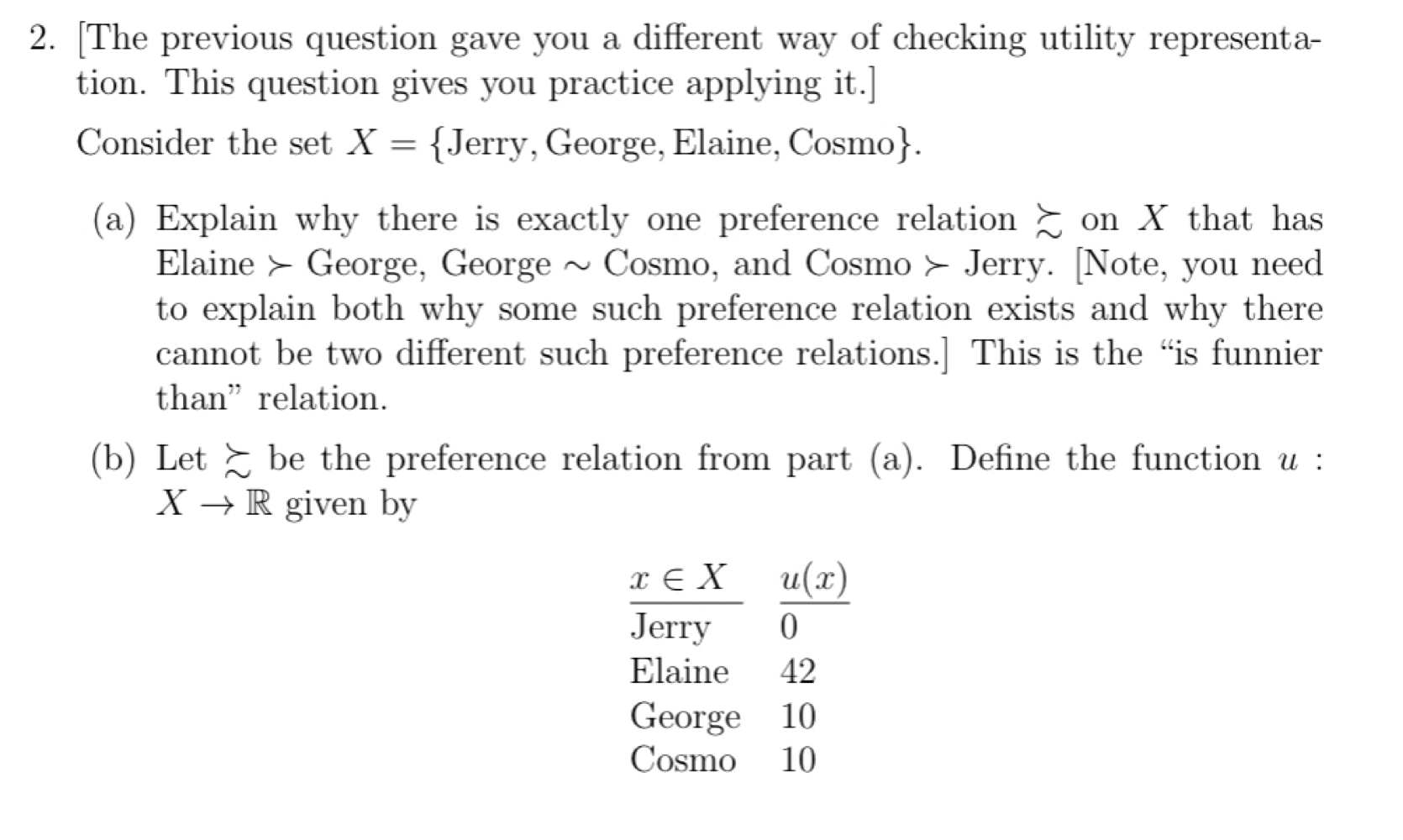Answered step by step
Verified Expert Solution
Question
1 Approved Answer
For the question below, use these symbols correspondingly: Preference relation: ? Strictly preferred to: ? Indifference: ~ Is a subset of: ? i.e. A ?
For the question below, use these symbols correspondingly:
Preference relation: ?
Strictly preferred to: ?
Indifference: ~
Is a subset of: ? i.e. A ? B means A is a subset of B
Please bold things like R (real numbers), R+ means positive real numbers, vice versa.


Step by Step Solution
There are 3 Steps involved in it
Step: 1

Get Instant Access to Expert-Tailored Solutions
See step-by-step solutions with expert insights and AI powered tools for academic success
Step: 2

Step: 3

Ace Your Homework with AI
Get the answers you need in no time with our AI-driven, step-by-step assistance
Get Started


